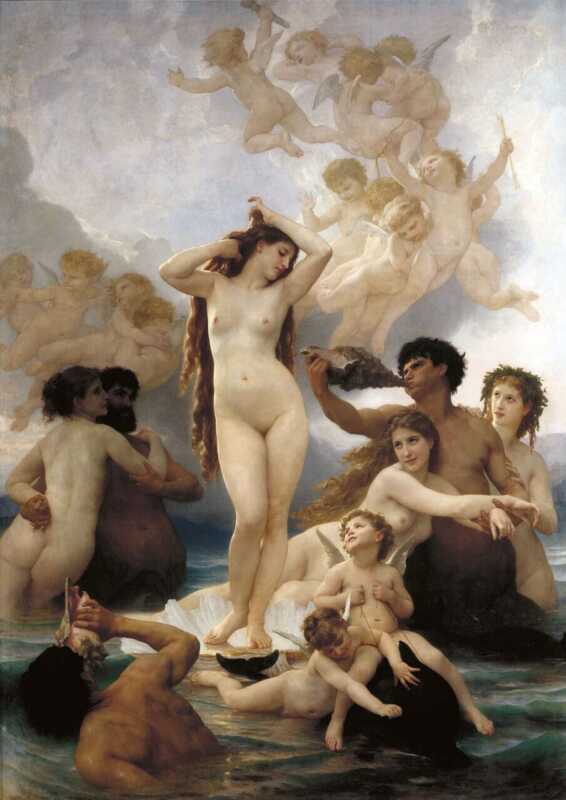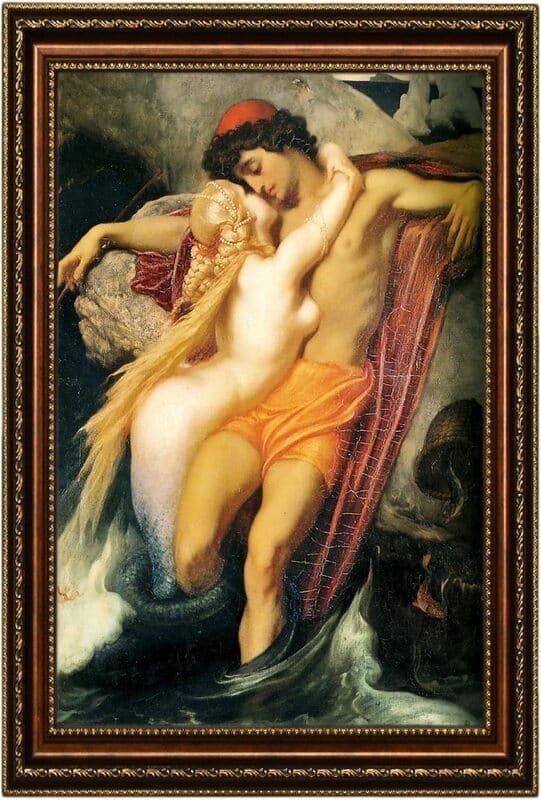What are the main gods in ancient Greece?
Greek mythology is a series of explanations that the inhabitants of Ancient Greece had to understand the world that surrounded them. They were the beliefs that the Greeks had on aspects such as the creation of the universe, the origin of man, human intelligence, the feeling of love and war, etc.
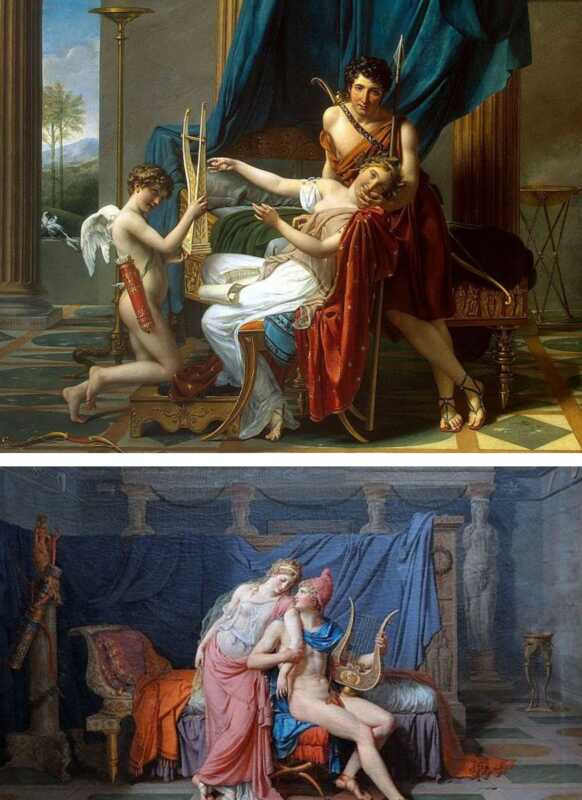
All the conditions of the human being were explained in these myths that brought together great gods who lived on Olympus and were in charge of managing everything that happened in the world.
Greek mythology
The beliefs that the ancient Greeks had about the world and their possible origins are compiled in mythological stories, stories from oral tradition that have been able to reach our present day thanks to the work of authors such as Sophocles, Homer or Hesiod, among many others. They created literary works such as “Oedipus the King” by Sophocles, which contained a strong mythological charge since they specialized in narrating the adventures and misadventures of the Olympian gods.
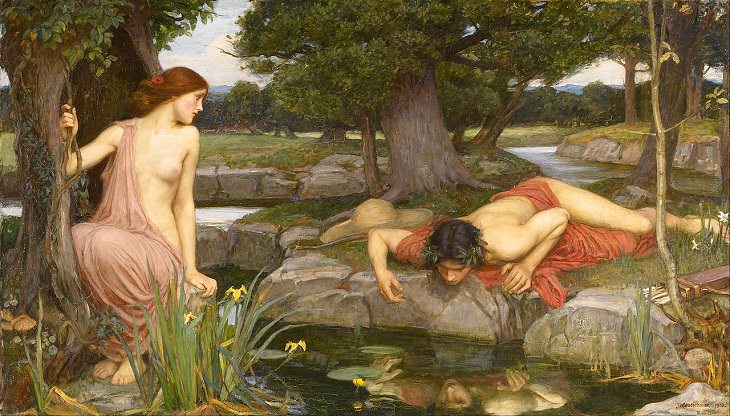
The development of this mythological literature took place, above all, from 700 BC, when collections of myths made by some of these authors appeared: “Theogony” by Hesiod, “The Iliad” and “The Odyssey” by Homer.
Why were the Greek gods so human?
The Greek gods were different from the current deities and, for this reason, externally they have a face similar to the human being but, in addition, they also have human feelings and emotions; for this reason we can discover vengeful gods, others who feel anger, and so on. The essential difference with respect to the currently founded religions is that these gods of Greece do not offer spiritual teachings, but their stories and legends are loaded with completely human morals that will teach people to have a better life.
Olympus is the mount on which the gods have chosen to live, a region found in the Thessaly region of Greece. On this mountain the gods lived as if in a separate country, creating a society that was organized according to the powers and ranks of each deity.

Main gods in ancient Greece are:
Zeus, the Supreme God
Zeus is the highest god of Olympus, he is in charge of controlling order, justice and destiny within the Universe. He is the son of two Titans, Cronus and Rhea and therefore brothers to other Greek gods such as Hades, Poseidon, Hera, Hestia and Demeter.
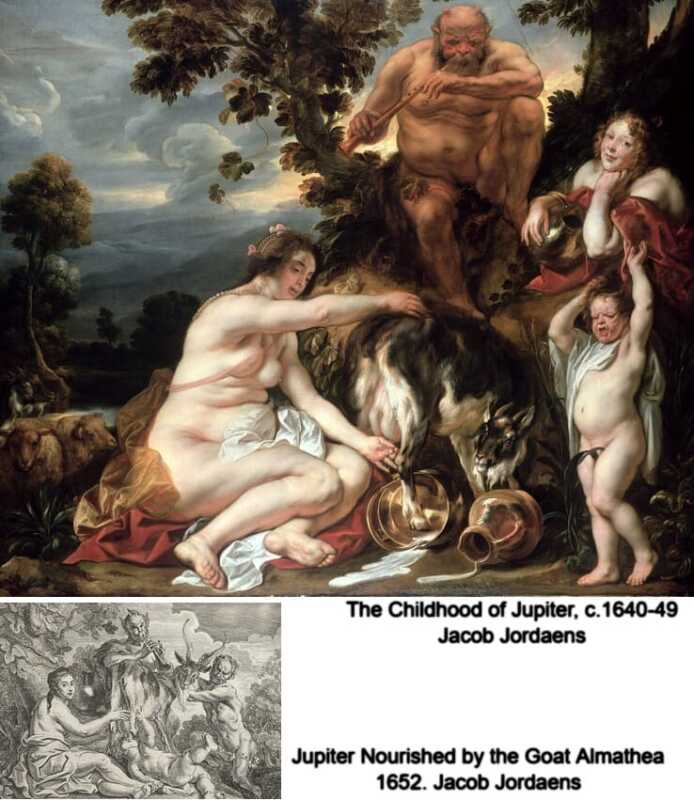
Before the Greek gods appeared, the world was controlled by Titans and, in fact, Zeus and his brothers are the children of a couple of Titans.
Cronos, his father, was afraid that one of his children would take his place and, therefore, every time he had a new descendant, he ate it. Rhea, the mother, could not bear this act and, therefore, she was able to save Zeus from her father by hiding him in Crete, but when the child grew up, she gave her father a plant so that he would vomit all his brothers, full of desire to vomit. revenge.
Paint Your Life
Since then a great fight took place that pitted the Titans against the gods and, in the end, it was the latter who managed to win, for this reason, the Titans were sent to the abysses of Tartarus (in the underworld) and Zeus was erected as the supreme god. Together with his two brothers, Poseidon and Hades, he had to divide the three kingdoms of the world: the sky (Zeus), the sea (Poseidon) and the underworld (Hades).
The element that most represents him is the lightning with which he can control both the rains and punish people.
Who was Hera, the Goddess of Olympus?
Zeus’s wife is Hera and, for this reason, she is the goddess of Olympus in Greek mythology. She is the sister of her husband and, therefore, she is also the daughter of the Titans that we have mentioned before. At first she did not want to marry her brother but, in the end, this god (who was a king in disguises and disguises) managed to win her heart by turning into a helpless bird.
Due to her status as the wife of Zeus, Hera is the protector of marriage and married women. She had to deal with many infidelities from Zeus and, for this reason, she is usually represented as a goddess with a jealous, violent and vengeful character. Despite this, she is the goddess related to everything that marriage entails, including female fertility.
Her children are some of the main Greek gods: Ares, Hebe, Hephaestus and Ilitia.
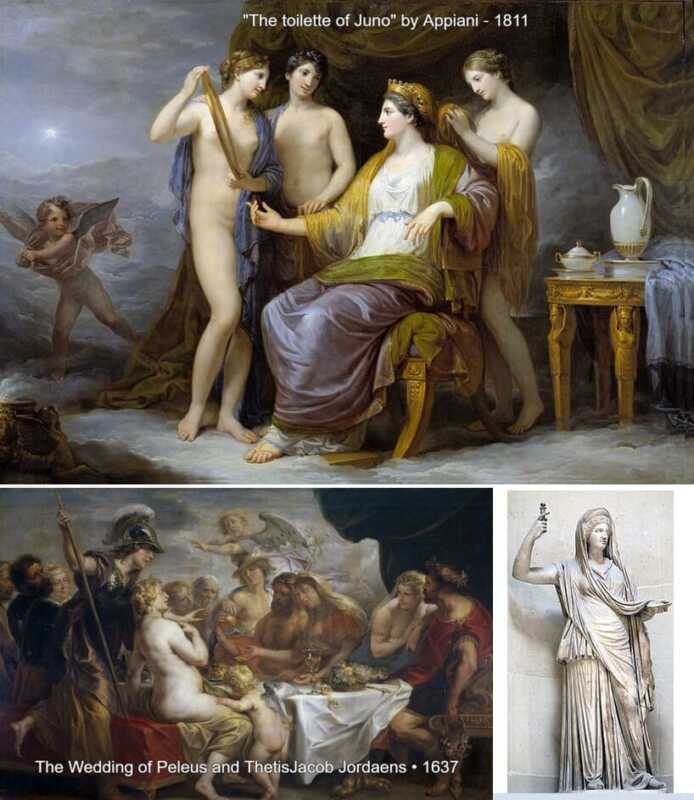
Some of the characteristics of the goddess Hera (Juno for the Romans) are the following:
- She was a jealous, violent, and vengeful goddess. She persecuted the numerous women who had been seduced by Zeus, as well as the children that had been born from these unions.
- She had permanent disputes with her husband, both because of her infidelities and because of her arbitrary decisions. The Greeks attributed the storms to the fights between the divine marriage.
- She participated in a plot to overthrow Zeus from his Olympian throne, but she was found out and punished by the god, who hung her by suspenders in the Olympian palace until she swore never to do it again.
- She participated in the Gigantomachy, the war against the Giants, along with the other gods. She was attacked twice but was saved with the help of Zeus and Heracles.
- Along with Athena and Aphrodite, she participated in a competition to determine who was the most beautiful goddess. The result of this contest, which Aphrodite won, resulted in the start of the Trojan War, in which Hera took sides against the Trojans.
-
Although she was worshiped throughout Greece, she was the patron goddess of Argos, where she had an important sanctuary. She also had cult centers in Olympia, in Tiryns, on the island of Samos and in Elis among other places.
In Argos and Olympia, the heroic games were held in her honor, similar to the Olympic Games but in which only women participated. - In the mythology of Ancient Rome, Hera was assimilated to Juno, the wife of Jupiter, in the aspect of mother of the family and faithful wife of her.
What was Hephaestus like, the God of Fire and Metallurgy?
He is one of the sons of Zeus and Hera: Hephaestus. He is the only artisan god on Olympus and, therefore, he is the god of metallurgy since he worked for the other gods creating objects they needed to fulfill their functions.
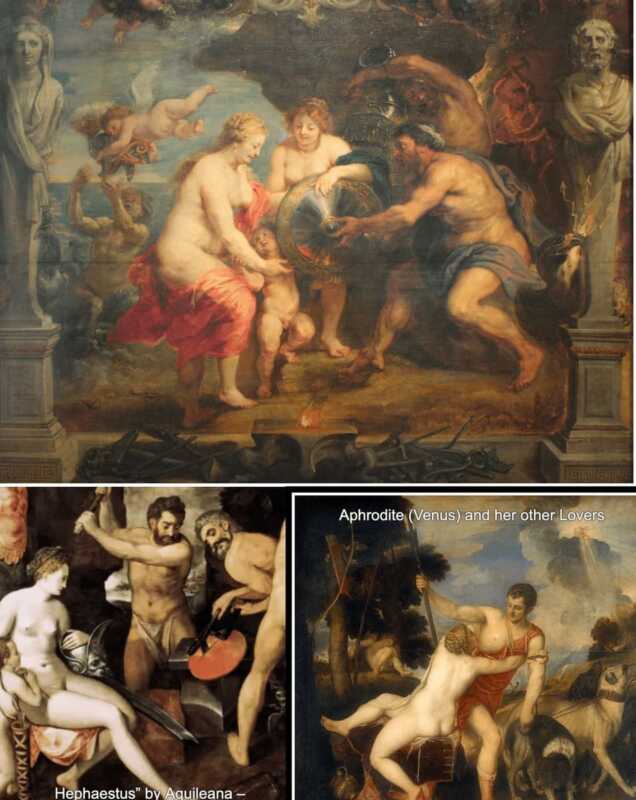
In addition to this, Hephaestus is also the god of fire, but not domestic fire, but creative fire, which is capable of bending metals and, thus, being able to create tools with its power.
Hephaestus was in charge of manufacturing Zeus’ lightning bolts but also the arrows of other gods such as Artemis and Apollo, Heracles’ breastplate, the chains worn by Prometheus or the weapons used by Achilles. Let’s say he was the ancestor of Amazon.
In appearance Hephaestus was different from the other gods because he was lame and gangly and, for this reason, his mother threw him out of Olympus.
But, in time, he manages to return to the sacred mountain and even marry Aphrodite, the goddess of love and beauty (Venus for the Romans).
Apollo the Protector of Music and Medicine?
Apollo is the son of Zeus but not of Hera but is the result of the relationship that the god had with other women, in this case, Leto who was also the daughter of a Titan. He is considered the protector of medicine and music, especially the lyre, the instrument with which he has always been represented.

Apollo is a god of prophecies because he knew the will of Zeus and, therefore, he could reveal future events to humans in different oracles spread throughout Greece, where the most famous of them was that of Delphi.
Apollo also perfectly masters the use of the bow, a weapon with which he encourages the gods to punish mortals for their acts. In fact, he is considered a good athlete and was the first to win the Olympic games.
Aphrodite is the goddess of love and beauty?
Aphrodite (Venus to the ancient Romans) is the wife of Hephaestus, the lame and deformed son of Zeus and Hera. She is also the goddess of love and beauty and her appearance in the world is one of the most well-known mythological stories. She appeared among the waves of the sea on a car made of sea shells. Everyone who witnessed this moment could not take their eyes off this precious goddess. She was represented in countless statues and paintings, especially in the Renaissance. The most famous is Botticelli’s painting The Birth of Venus.
Sandro Botticelli – Birth of Venus – 1485
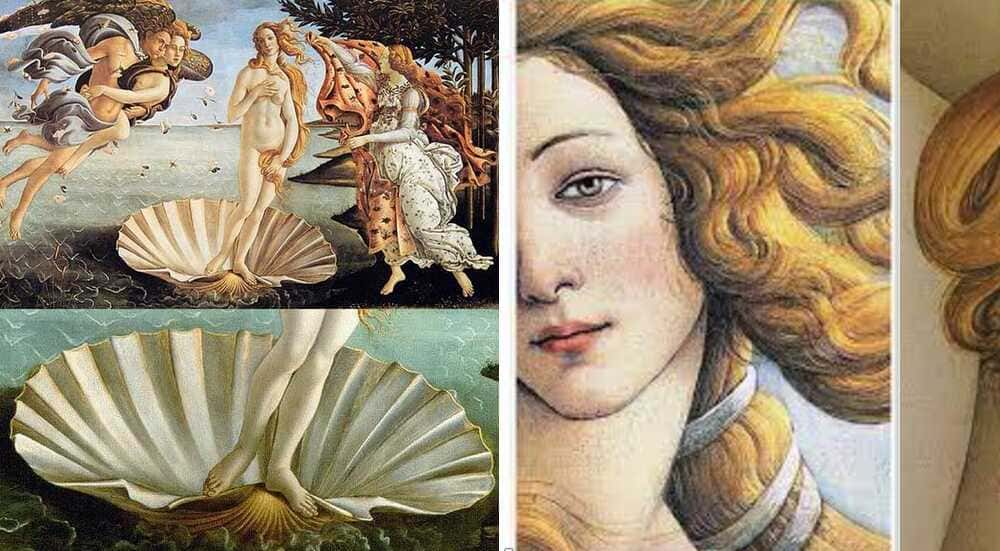
She is married to Hephaestus. but she has other lovers like, for example, the god of war Ares; even in other mythological compilations it is indicated that this was actually her husband. Of all the stories in which Aphrodite appears, the one about the Trojan War is the best known because it is for her that Paris ends up choosing Helen.
Who was Hades, the god of the dead?
The two brothers of Zeus were Hades and Poseidon, with whom the different kingdoms of the world were divided. Hades is in charge of controlling the underworld, that is, the world of the dead.
Here he lives with Persephone, a queen whom he has kidnapped from the world above and whom he has baptized as the queen of the underworld. She was represented as a fierce and ruthless god, but nevertheless, he was not evil because he was not the Christian devil, he was simply the god in charge of controlling that part of the world.
The underworld was also known by the name of Hades and was divided into two zones:
Erebus: is the area through which the dead enter when they have just died
Tartarus: it is the deepest area and the place where the Titans are exiled after the war
The world of the earth and the underground was divided by rivers that, to cross them, you had to go in the boat of Charon, the one in charge of transferring souls to the underworld.
Poseidon, god of the sea
Zeus’s other brother is Poseidon, the god of the sea. Despite the fact that he was married, he was also an unfaithful god and full of lovers, especially with the nymphs of the springs. From these extramarital relationships came some children who are known in Greek mythology for their savagery such as the giant Orion or the horse Pegasus.
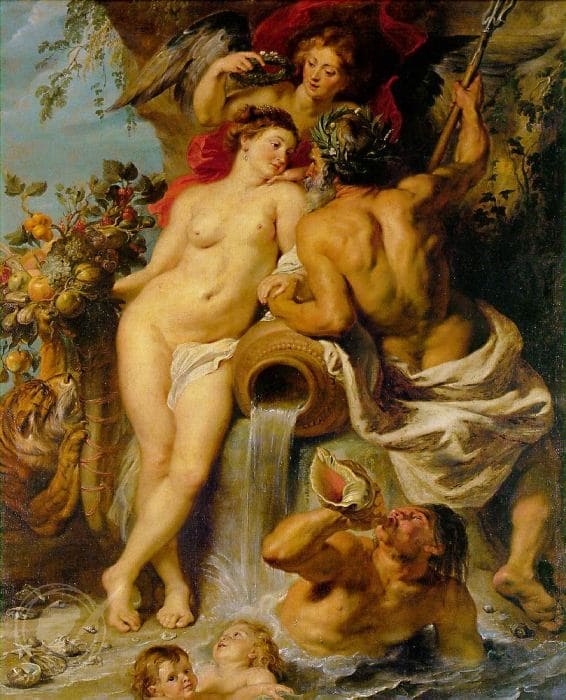
Poseidon is a god that appears in a large number of legends and Greek myths. He is represented standing on the sea or in a chariot that is a giant golden snail and is driven by sea horses. In his sculptures he was always accompanied by marine animals such as fish, dolphins, etc.
The most representative weapon of this Greek god was the trident with which he was able to stir up the waters and even wreck ships.
Ares, god of war
Ares, the god of war, was born from the marriage between Zeus and Hera. He is usually represented with typical elements of the war world such as helmets, shields, swords and a breastplate. He was always branded as an aggressive and bloodthirsty god, due to this he was very unpopular with both the gods and mortals.
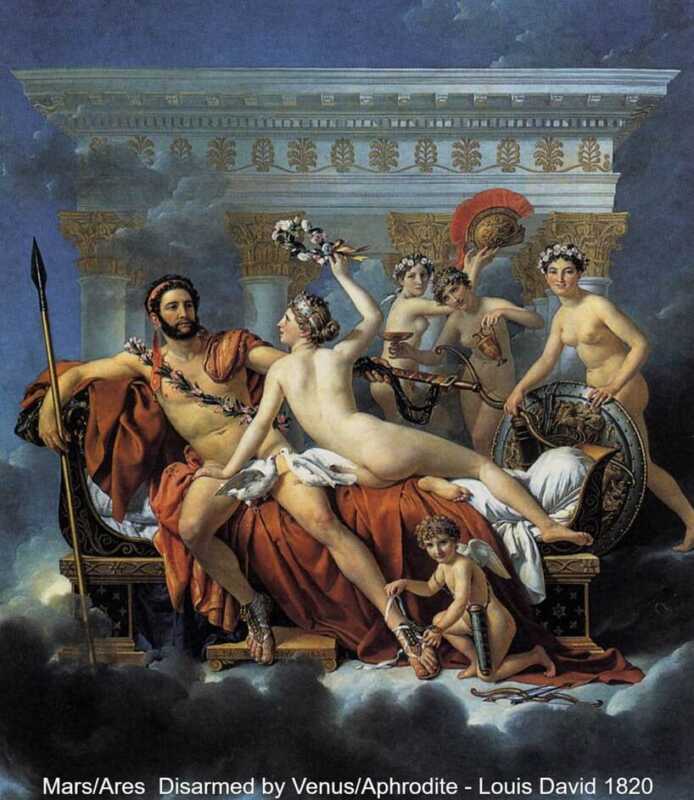
Although he is the god of war, he is killed in many fights, something that once again makes clear one of the characteristics of the Greek mythological gods and that is that, on occasions, they were very similar to human beings, showing both virtues and defects. . He wasn’t invincible even when he was fighting humans.
Athena, the goddess of wisdom and war
Also known as Pallas Athena (Παλλὰς Aθήνα), she is a goddess of war. Unlike Ares, who personified war in a brutal way, Athena directed warfare in an intelligent and orderly manner. In addition, she was the goddess of civilization, wisdom, reason, intelligence, combat strategy, victory, science, crafts. She also of industry, inventions, arts, trades, navigation, heroes, strength, courage, protection, the city state, education, justice, law and ability.
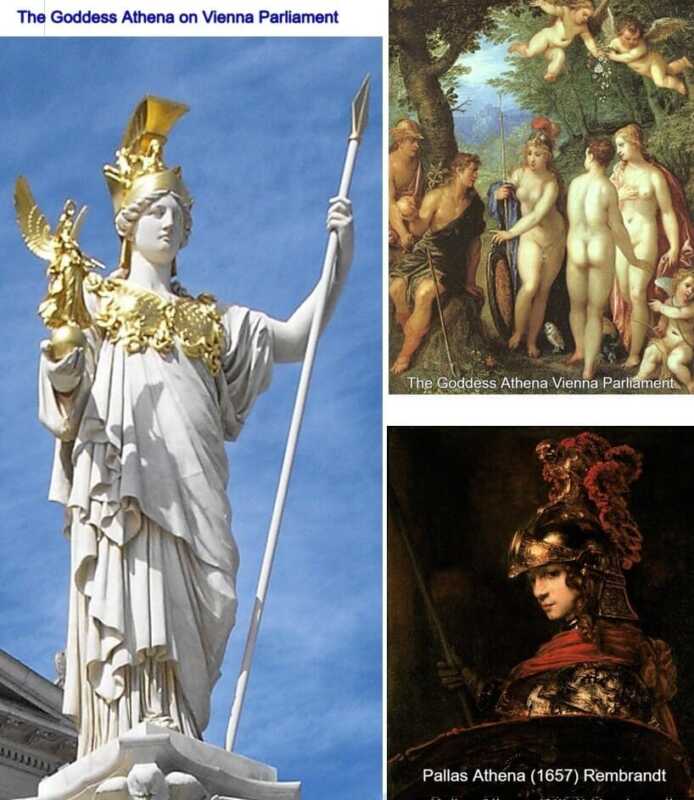
She is the favorite daughter of Zeus and one of the important ones in Greek mythology. She was one of the main divinities of the Greek pantheon and one of the twelve Olympian gods. Athena was worshiped throughout Ancient Greece and throughout its area of influence, from the Greek colonies of Asia Minor to those of the Iberian Peninsula and North Africa. Its presence is attested even in the vicinity of India. For this reason, her cult took many forms and even had a considerable extension to the point that her figure was syncretized with other divinities in the regions surrounding the Mediterranean. In Roman mythology she was worshiped under the name of Minerva.
This goddess was born an adult and, from the first moment, was the favorite of her father; in fact, Zeus wants to protect her from her so much that he ended up entrusting her shield to him so that no one could harm her, she also gave him her lightning so that she would have the same strength as him.
The teachings and tools that Athena showed to the Greek citizens caused the population to raise a large number of statues and temples in her honor; one of the most famous is the Parthenon in Athens, whose ruins can still be seen today.
The Apple of Discord or The Judgment of Paris
During the nuptial link between Peleus and Thetis (future parents of Achilles) Eris made an appearance, who had not been invited, alone, with the intention of causing a conflict among those gathered there.
She was carrying a golden apple, which she threw at the feet of the goddesses Aphrodite, Athena, and Hera. Said apple carried an inscription indicating that it was for the most beautiful woman, something that motivated the three deities to argue among themselves about who should keep it.
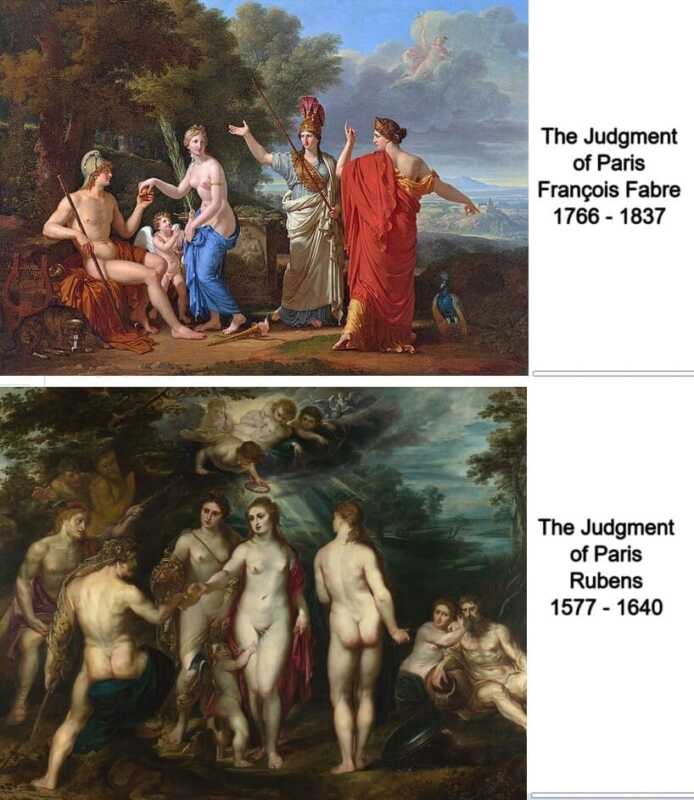
As Hera said that she should be for her, instantly, Athena and Aphrodite also claimed the apple and put Zeus as referee. Zeus did not want to take part for any of the goddesses since he knew that at least two of them would end up making claims for his intervention or what is worse, making enemies with him and he decided to get rid of the problem.
Nothing better occurred to him than to send the three goddesses before the young and beautiful Paris so that he could decide (Judgment of Paris)
One by one the goddesses were parading before him covering him with promises. -I promise to give you power and riches if you choose me- Hera said.
Athena promised him: -If you say that I am the most beautiful, I will grant you glory in wars and fame everywhere-.

But, the sensual Aphrodite, who was very cunning, offered him the most beautiful woman for his wife and this definitely convinced him.
Aphrodite got the golden apple and from then on Hera and Athena became her worst enemies. The young man convinced by the words of the goddess Aphrodite, he ended up kidnapping Helena, which led to the so-called ‘Trojan War’
Greek pantheon: Table of equivalences between Greek and Roman gods
|
Bouguereau – The birth of Venus on eBay
